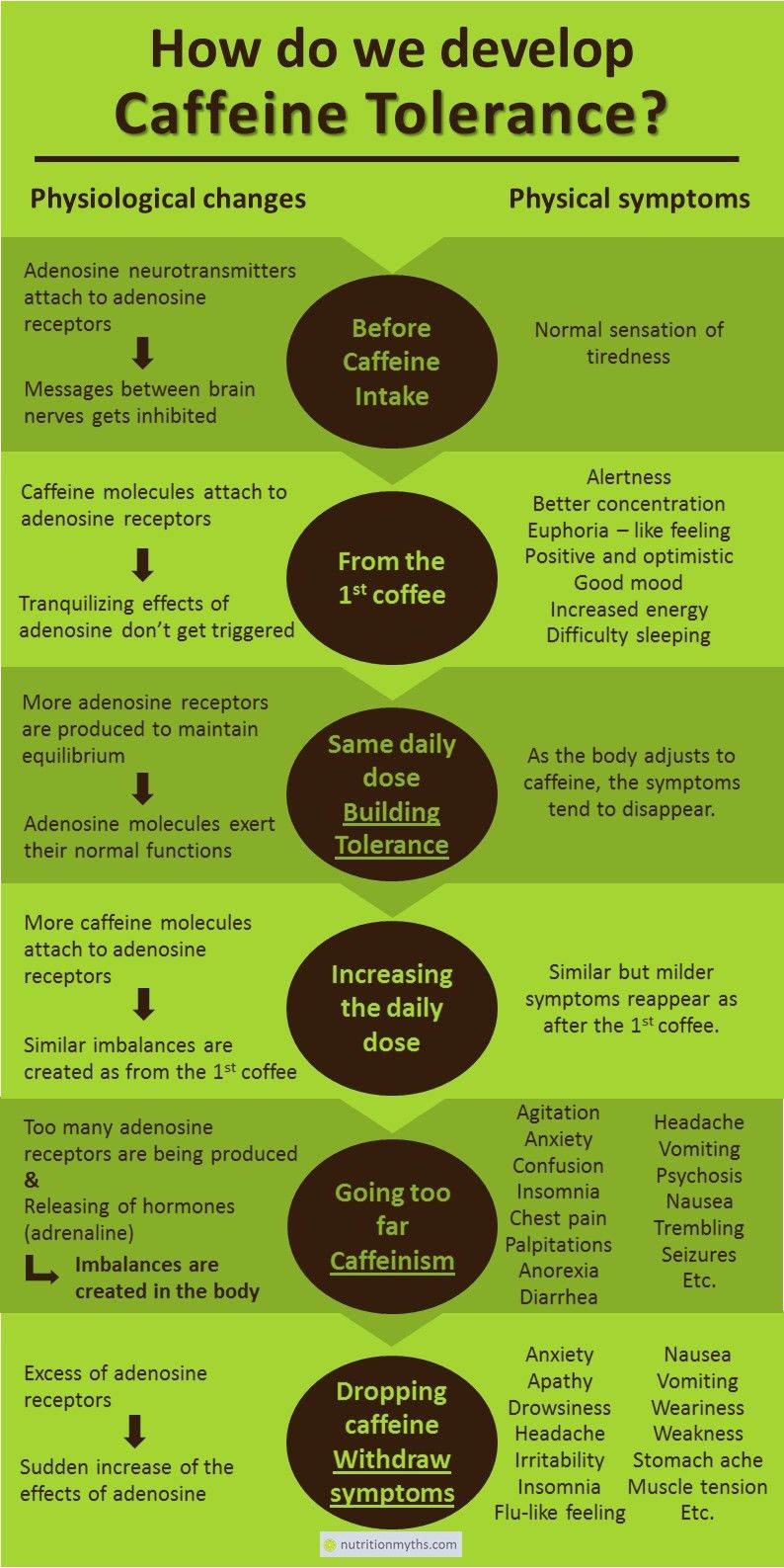
Contents
How Long Does Caffeine Tolerance Take to Develop?
Caffeine tolerance is the body’s ability to adapt to regular caffeine intake, causing you to need more coffee for the same effects. It can take up to a month for caffeine tolerance to fully develop.
Caffeine tolerance can occur with any regular caffeine intake, including coffee, tea, and energy drinks. It is thought to be caused by changes in brain chemistry.
Caffeine tolerance affects physical performance but not cognitive performance.
Many caffeine users are aware of tolerance, which means needing more coffee over time. Research confirms that while you might not feel it directly, caffeine tolerance is real. Studies show that all regular caffeine users will experience lesser effects from their usual dose.
Tolerance can develop regardless of the dose. The frequency of caffeine intake is what matters. Even small amounts of caffeine taken daily will lead to tolerance.
Why does caffeine tolerance happen?
Caffeine tolerance occurs when the body gets used to daily caffeine intake. It adapts by changing parts of the brain to function normally after caffeine consumption. More adenosine receptors, which impact caffeine’s effects, can be created.
Genetic changes in the brain’s striatum, responsible for voluntary movement, may also contribute to caffeine tolerance. The exact mechanism is not fully understood, but it is a real phenomenon.
How long does it take to develop caffeine tolerance?
The timeline for developing caffeine tolerance depends on physical or mental effects. Research shows that tolerance only affects physical effects, while cognitive performance remains unaffected.
In a study comparing performance between a caffeine group and placebo group, participants who received coffee had improved performance. However, the effect decreased over time. After about 15 days, the performance increase was nearing normal levels, although improvements were still present. After a month of daily caffeine intake, the effects disappeared.
To establish a general timeline for caffeine tolerance in physical performance:
- Days 1 – 15 — Considerable increase in athletic and physical performance, which gradually diminishes over time.
- Days 15 – 30 — Moderate performance benefits that are similar to non-caffeinated performance.
- After day 30 — Caffeine’s physical benefits disappear, and performance returns to pre-caffeine levels.
QUESTION
How do I restore my caffeine tolerance?
Restoring caffeine tolerance does not have clear guidelines. It is believed that reducing or completely abstaining from caffeine is necessary, but the duration of the limitation is not determined.
In a study, caffeine significantly improved performance regardless of a four-day withdrawal period imposed on trained athletes.
In another study, caffeine withdrawal did not affect factors other than mood and reaction time.
If you want to break your caffeine tolerance, consider abstaining or severely limiting caffeine intake for a period. Consult a doctor or licensed dietitian for personalized advice.
Preventing caffeine tolerance
If you don’t regularly consume caffeine, experts recommend four days of caffeine intake followed by days without it. This can temporarily enhance athletic performance or help during intense study or work sessions.
What can I expect when withdrawing from caffeine?
Frequent caffeine users may have developed dependence and tolerance. Withdrawing from caffeine may cause symptoms such as headaches, anxiety, muscular pain, fatigue, nausea, and difficulty concentrating. These symptoms typically last for about a week. Gradually reducing caffeine intake is an alternative to avoid these side effects.
Sources:
Harvard School of Public Health: "Caffeine."
Journal of Sports Sciences: "Caffeine withdrawal and high-intensity endurance cycling performance," "Chronic ingestion of a low dose of caffeine induces tolerance to the performance benefits of caffeine."
Journal of Strength and Conditioning Research: "Caffeine Use in Sports: Considerations for the Athlete."
PloS one: "Time course of tolerance to the performance benefits of caffeine."
Psychopharmacology: "A comparison of the effects of caffeine following abstinence and normal caffeine use."
The Journal of Neuroscience: "The Stimulatory Action and the Development of Tolerance to Caffeine Is Associated with Alterations in Gene Expression in Specific Brain Regions."


